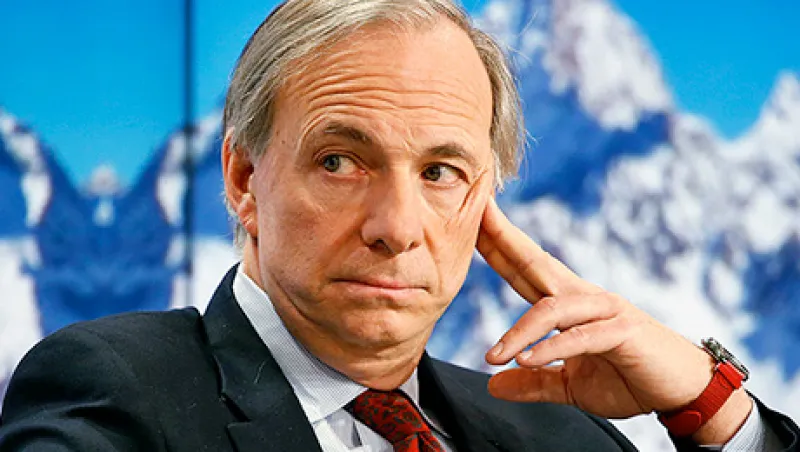Bridgewater Associates founder Ray Dalio said his firm is “tactically reducing our risk” in light of recent political tensions in the country and their potentially negative effects on government efficiency, according to a new LinkedIn post.
Dalio, who frequently posts his musings on the economy on the social media outlet, wrote on Monday that he thinks Americans are the most socially and economically divided they have been since the 1930s.
“Conflicts have now intensified to the point that fighting to the death is probably more likely than reconciliation,” Dalio wrote in the piece, entitled “The Principles That Divide Us Might be Greater Than Those That Bind Us Together.”
[II Deep Dive: Ray Dalio: Fired FBI Director James Comey is a ‘Hero’]
The post, which encourages readers to practice the art of “thoughtful disagreement,” comes amid a turbulent month in U.S. politics, marked by escalating nuclear rhetoric between U.S. President Donald Trump and North Korean leader Kim Jong Un and Trump’s much-derided response to the neo-Nazi rally in Charlottesville, Virginia that left three people dead and dozens injured. The president’s two CEO advisory councils were disbanded after several corporate chiefs resigned in protest following Trump’s controversial press conference on Tuesday in which he appeared to walk back earlier remarks denouncing the neo-Nazi protesters.
Dalio wrote on Monday that gaps in wealth and income are at their widest since the 1930s, at the same time that political disagreement is increasing.
“It seems to me that we are now economically and socially divided and burdened in ways that are broadly analogous to 1937,” Dalio wrote in his post.
Further, Dalio noted that while the risks he sees are not economically important right now, he is concerned about “growing internal and external conflict leading to impaired government efficiency.”
Dalio pointed to a Gallup poll that showed how among Republicans, President Donald Trump’s approval rating is 79 percent, while among Democrats, it’s 7 percent.
This is further punctuated by the 61 percent of Trump’s supporters who say that they can’t think of anything that the president could do that would change their views. Conversely, 57 percent of those who disapprove of Trump say they cannot think of anything that he could do to make them approve of his presidency.
“In other words, the majority of Americans appear to be strongly and intransigently in disagreement about our leadership and the direction of our country,” Dalio wrote. He added that these people seem more inclined to fight about their views rather than find common ground.
Whether, and how effectively, these differences are resolved could have a greater impact on the economy than monetary or fiscal policies, according to Dalio.
This isn’t the first time Dalio has commented on economic conditions following Trump’s election. Dalio had initially expressed optimism about Trump’s pro-business policies and their possible effect on the economy but quickly grew more critical of the president. In March, Dalio detailed the rise of populism in the U.S., and how the ideology is at its highest since the ‘30s.
In July, he warned investors that the era of central banks creating favorable economic conditions is almost over.
His latest missive struck a notably bleaker tone, as one reader noted.
“I get it, a guy can drown in an average of six inches of water, so can a political system,” a LinkedIn user commented. “The great income disparity of our time is testament to this.”
Dalio isn’t the only corporate leader expressing wariness about the current political climate. JPMorgan CEO Jamie Dimon’s memo to employees last week saying he “strongly” disagreed with President Trump’s reaction to the events in Charlottesville was followed by an announcement that the bank will pledge $1 million to anti-hate groups. Meanwhile, Goldman Sachs CEO Lloyd Blankfein took to Twitter to express his sentiments on the events.
“Wish the moon wasn’t the only thing casting a shadow across the country,” wrote Blankfein, referencing Monday’s historic solar eclipse. “We got through one, we’ll get through the other.”







